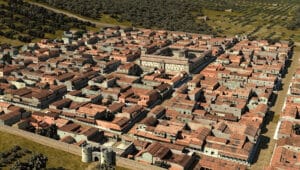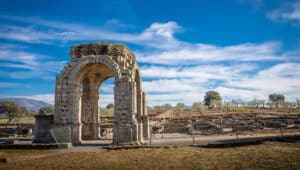Last month, I wrote about my trip to the UK and the start of my exploration of sugar, chocolate and the links to Portugal. It all started with reading Beatrice, a book about the Quaker, Beatrice Cadbury. It is a book by Fiona Joseph and I had the best fortune to meet Fiona, on a warm day in Bournville, which is where the Cadbury factory is handsomely located. Cadbury’s has for nearly 150 years kept a record of its advertising, production and relationships. This information is all housed in Lodge 1, in a unique archive. Fiona and I met in the Cadbury archive, a large room full of memorabilia, books and the Cadbury Worker’s Magazines. The archive is staffed by a really helpful archivist, Sarah Foden. Talking to both Sarah and Fiona meant that I was not disappointed to discover a Portuguese link to Cadbury’s.
Fiona is a relaxed, generous woman and a thoughtful writer, whose passion for Beatrice and the research makes the book a compelling read. We talked for over an hour and she helped me delve deeper into chocolate memories, but she also exposed some Cadbury dilemmas.
Beatrice married Cornelius (Kees) Boeke on December 19, 1911. They spent most of their lives as peace campaigners and educators. Fiona says that the Cadbury family, although horrified by some of Beatrice’s choices “rather admired her radical nature”.
What I found refreshing about the book, was that Beatrice lived by principles and eventually grew into a more rounded character, not abandoning her principles, but applying them more realistically and humanely.
When Beatrice gave up her inheritance, a trust was set up called the Boeke Trust, that would later benefit Beatrice’s eight children. Fiona is now researching women who worked at Cadbury’s during World War One.
So what is the link to Portugal? The link is that on the October 5, 1908 Cadbury submitted a libel claim against the London Standard newspaper. The Cadbury company was accused of treating its workers in Bournville very differently to the Cocoa workers in São Tomé and Príncipe.
The company defended itself by saying the delay in responding to accusations was because they were trying to improve working conditions for the African workers. There is some suggestion in the archives that the Liberal UK Government of the day also put pressure on Cadbury’s not to act, so as not to upset the Portuguese Government.
Portugal abolished slavery in 1870, but allowed contract labour or indentured labour. These contracts were supposed to be willing agreements that were monitored and could be renewed every five years. The reality was that it was slavery by the back door. Warring African chiefs often sold captives off in exchange for guns and ammunition. Other reasons for contract labour were “some had broken native customs or Portuguese laws”, “some were charged with witchcraft”, “some were sold by poverty stricken relatives”. Around 4,000 “slaves” were shipped from Angola to the islands of São Tomé and Príncipe, where they would spend the rest of their lives on cocoa plantations.
In 1909, Cadbury’s Fry and Rowntree finally announced a boycott of cocoa from the islands and began to import from Ghana.
What I found fascinating about being in the archive is that there is a whole social history linked to many of our lives. You see this through the advertising campaigns, such as award yourself a CDM. (Cadbury’s Dairy Milk). Pop stars and attitudes fall out of the pages of the worker’s magazine. Being there brought back a personal memory from the 1960s: I was one of those children who wrote to Cadbury’s to find out more about the production of cocoa for a school project and I was sent a pack with cocoa beans, cocoa powder, chocolate and information about the process of making chocolate. It was like a sugar rush to see the pack again in the archive.
|| features@algarveresident.com
sue@suehall.net
Blog: suehallnet.wordpress.com

















